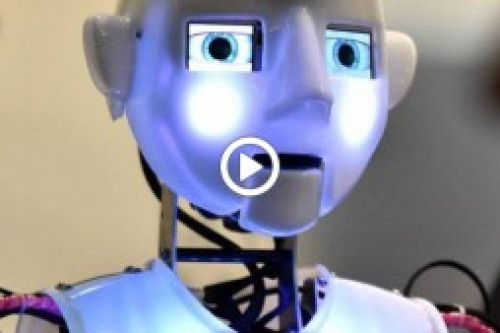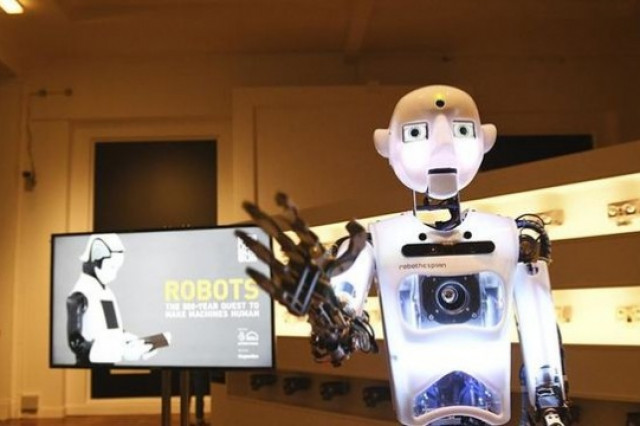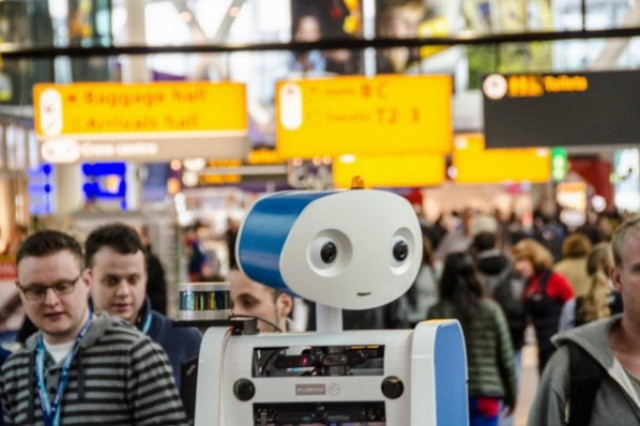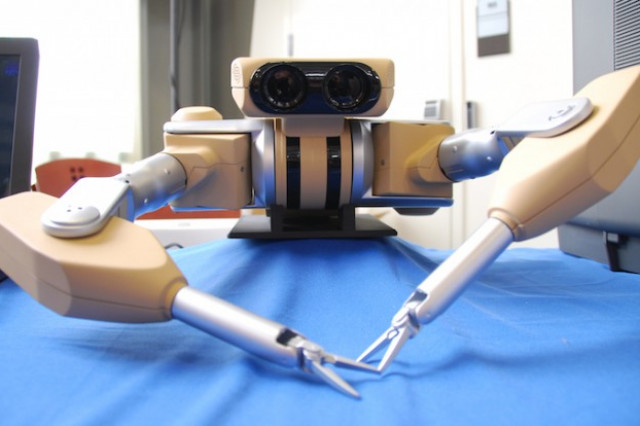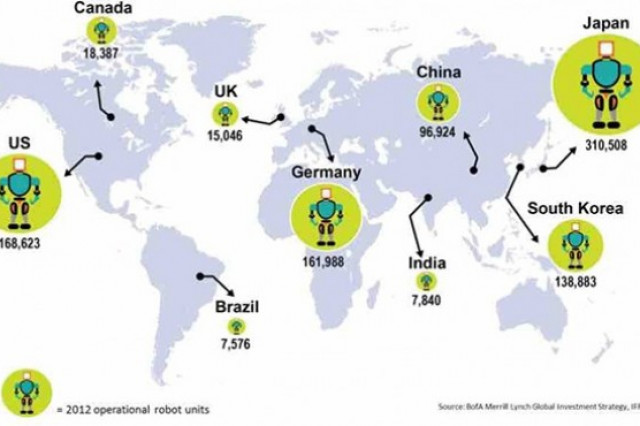The reports
On the subject of robots and work, we could speak of that fourth revolution that the reader will surely have read about. You will have seen that report from Davos at the World Economic Forum (a couple of years ago) that tells us that, in only 5 years, 7 million jobs will be lost and only 2 million new jobs will be created and another previous report of the Bank of England, to the effect that that there is a risk of losing 15 million jobs, so people have now become afraid for their jobs (as if the crisis were not enough).
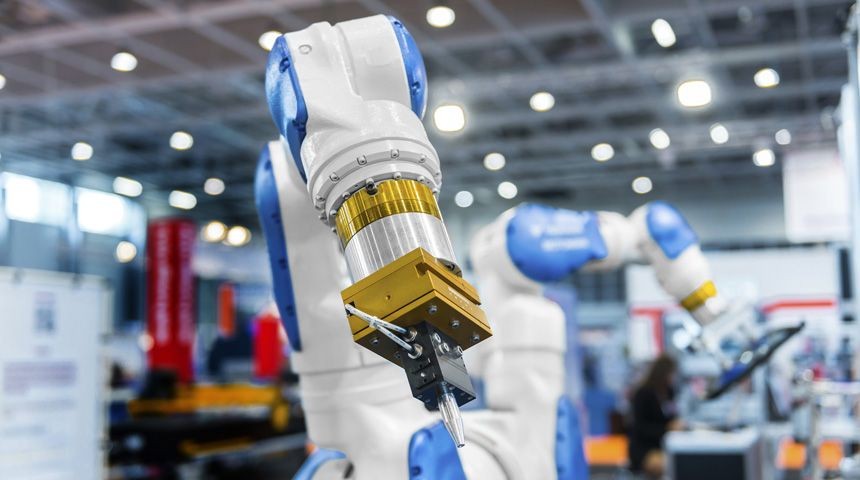
After this the so-called 20-80 will arrive, in which only 20% will be necessary to make sure everything works well, and 80% will only have low-skilled servitude jobs... or we can only dedicate ourselves to humanistic art... if wealth is well distributed. They will finish up by automating the industry that remains more and digitizing the companies, all the paperwork, invoices and dealings with administrations. But all these possible problems will be solved by saying that new jobs will be created that we cannot even think about (more devices, programmes... with their designers, programmers, engineers...). With what, as always, we can play with different points of view as happens in all surveys.
The tools
So the robot and work conflict has been happening since the invention of the steam engine, as a clear example from the first industrial revolution. If we do not remember the use of domestic animals in the fields before, I say that it took the work away from hunters, who then helped in the harvest... Like any other tool invented by man throughout their history, which was not done for any other reason but that a task is done in less time and with less people (if a task is carried out faster it is as if you were using 0.5 people instead of 1.0 as before).
Since tools are inanimate objects, what worries me is not what the tool can do but rather what man can, the boss can or the powers-that-be can do with it
Since tools are inanimate objects, what worries me is not what the tool can do but rather what man can, the boss can or the powers-that-be can do with it. From the handling of a car, a pistol, a bomb or hundreds of factories of charcoal and firewood that have caused inequality in past centuries. And they continue to be now alongside oil and other mineral resources in underdeveloped countries.
The job
We forget that work should be "work to live" and not "live to work". Work should be something that we like to do, although by its very nature of schedule, responsibility and repetitiveness, we are prevented from doing so and made to hate it instead, but of course that is why we get a salary that comforts us. So if we are working at something we enjoy, we can never be happy that a machine replaces us, because they do not have the same love, feeling and dedication as we do.
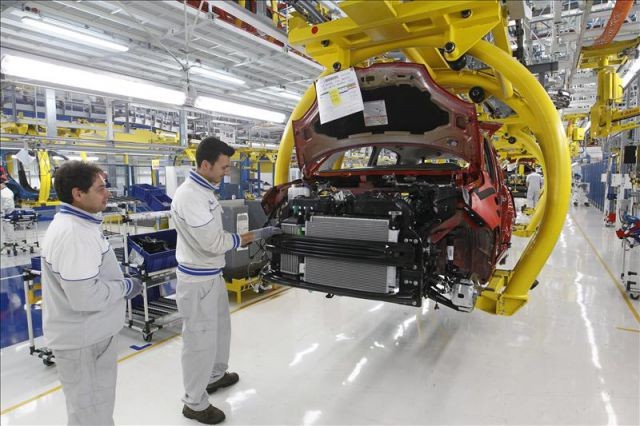
Very few will be happy doing the same repetitive task in an assembly line, and if they are, it is because they have no knowledge of anything else, because they have no courage to learn and create, because it is a good job, with good salary, which then allows them to live as they wish, with time to spend, with their family, with hobbies... But in truth they do not love their work, rather what this later provides them with.
The robots
And now we come to those machines, those future robots, which will be practically super-prepared humans, whom we must fear and yet allow them to develop because we have made them ourselves. In principle, it is the same fear that we can have about someone smarter, more experienced and more qualified who comes and takes our job. Although having reached this point, I am sure that any of these robots, even an outdated version, will be faster and more effective than any other human with much knowledge in the field. As I mentioned before, if someone has bought this robot to do a task, taking the job away from another person, it is because someone has created and sold it, giving them and their colleagues work. And similarly, returning to the reports... we will have created new jobs, which do not have to be highly qualified, but also low ones as well.
The present
Right now, although everything advances quickly, I still see the same as the 80's with the appearance of the first microchips. The universities and companies already made robots, which talked to you, walked down the corridor and did something for you in the house. They all seem to have been started from scratch, without sharing information between them. They make a biped structure, with wheels or legs to give them movement, "intelligence" to create maps and move freely, schedule a task and a purpose, ask you your name, remember you... The difference is that now, in the same way as the computers and phones of yesterday compared to those of today, is that they do the same, but they work faster and they are designed and assembled in a short time and are seemingly cheaper given that it is true that they reached a wider public.
Work should be something that we like to do, although by its very nature of schedule, responsibility and repetitiveness, we are prevented from doing so and made to hate it instead, but of course that is why we get a salary that comforts us
I say apparently cheaper, because if you want something decent, good quality, with good sensors and materials, you still need to have money. Before the laptops became cheaper, they still had more memory and were faster but it still ended up the same, so why more power if we did not lower the price? Someone with a coin could buy many things in the last century, and with not much more, almost an entire house, and we used to think how cheap everything was... but we need to have that coin, and very few had it. So right now, to be able to create that really futuristic robot, would cost so much money, that just like everything before, would stay in the shop window.
Future
However, I am not saying that this will not come, thanks to God, and that little by little the same thing is not repeated again and again. With internet we share information, if it is to do the same, but as it is easier, doing it faster, we finish sooner and we start to see something more difficult than before when we did not have time. And the sensors and actuators, although they are of poor quality and the cheapest, are much better and advanced than the most expensive of a decade ago. Software is what we have the most advanced, being the cheapest, and also more computing power. The physical price will simply go down with mass production and process improvement. What would be missing is the creative ideas, the desire of a company to develop them, one of those idols born of basements and garages, that creates that product that everyone wants. What happens in such a multidisciplinary field is that one person is not expert in everything, in mechanics, programming, language... since there have always been chats with robots, and as now big search companies and internet sales have a machine that understands you... but still Indian, word by word, because it lacks a use of everyday and badly spoken language, the knowledge of language or psychology that would be needed to programme it well. Of course humanoid robots will come, hopefully a robot for everyone, and that robot will take care of working for you all your life while you enjoy your free time and family. But we will not see this until we are lucky to be old or as it is always said, our children will see it.



